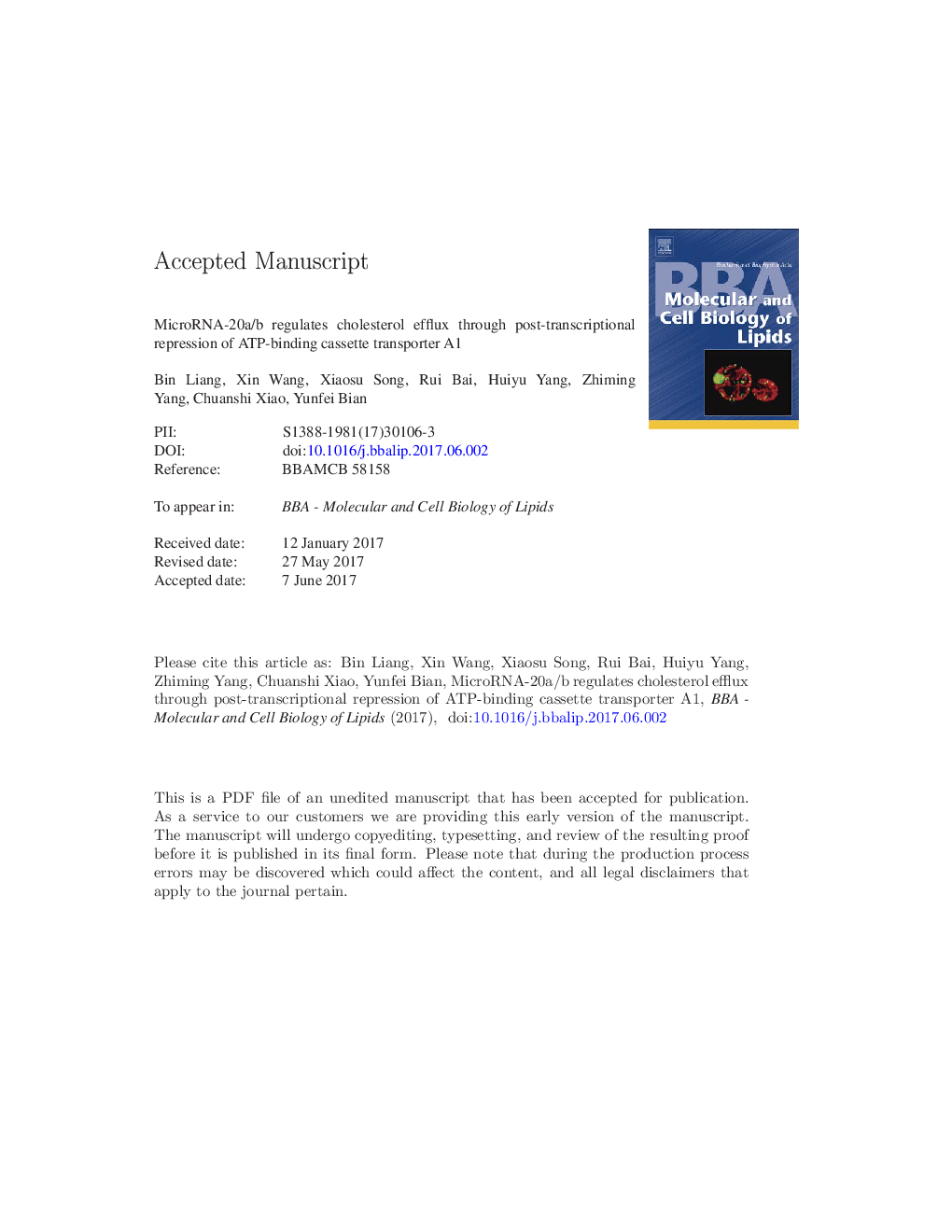| Article ID | Journal | Published Year | Pages | File Type |
|---|---|---|---|---|
| 5508365 | Biochimica et Biophysica Acta (BBA) - Molecular and Cell Biology of Lipids | 2017 | 31 Pages |
Abstract
ATP-binding cassette transporter A1 (ABCA1) plays a crucial role in reverse cholesterol transport and exhibits anti-atherosclerosis effects. Some microRNAs (miRs) regulate ABCA1 expression, and recent studies have shown that miR-20a/b might play a critical role in atherosclerotic diseases. Here, we attempted to clarify the potential contribution of miR-20a/b in post-transcriptional regulation of ABCA1, cholesterol efflux, and atherosclerosis. We performed bioinformatics analysis and found that miR-20a/b was highly conserved and directly bound to ABCA1 mRNA with low binding free energy. Luciferase-reporter assay also confirmed that miR-20a/b significantly reduced luciferase activity associated with the ABCA1 3â² untranslated region reporter construct. Additionally, miR-20a/b decreased ABCA1 expression, which, in turn, decreased cholesterol efflux and increased cholesterol content in THP-1 and RAW 264.7 macrophage-derived foam cells. In contrast, miR-20a/b inhibitors increased ABCA1 expression and cholesterol efflux, decreased cholesterol content, and inhibited foam-cell formation. Consistent with our in vitro results, miR-20a/b-treated ApoEâ/â mice showed decreased ABCA1expression in the liver and reductions of reverse cholesterol transport in vivo. Furthermore, miR-20a/b regulated the formation of nascent high-density lipoprotein and promoted atherosclerotic development, whereas miR-20a/b knockdown attenuated atherosclerotic formation. miR-20 is a new miRNA capable of targeting ABCA1 and regulating ABCA1 expression. Therefore, miR-20 inhibition constitutes a new strategy for ABCA1-based treatment of atherosclerosis.
Keywords
Related Topics
Life Sciences
Biochemistry, Genetics and Molecular Biology
Biochemistry
Authors
Bin Liang, Xin Wang, Xiaosu Song, Rui Bai, Huiyu Yang, Zhiming Yang, Chuanshi Xiao, Yunfei Bian,
